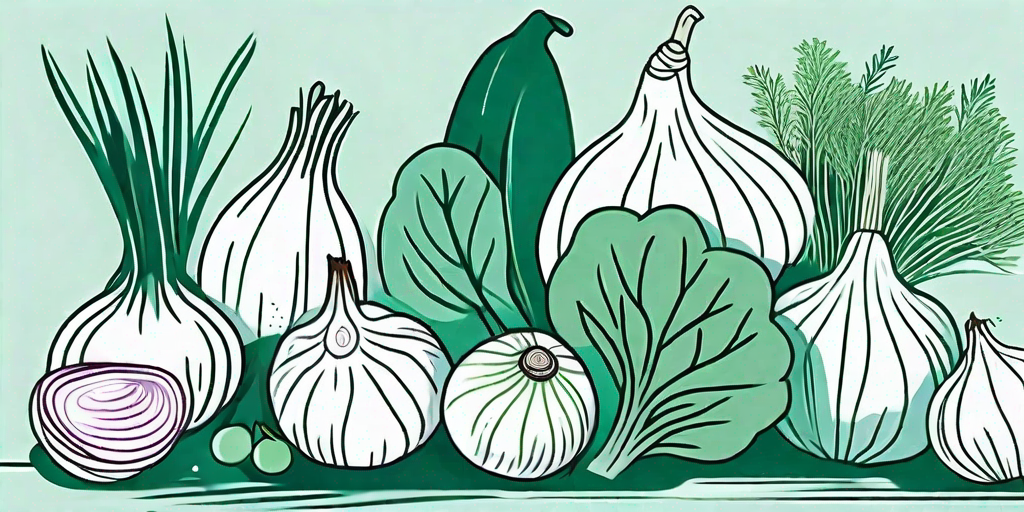
Elderberries, those small, dark purple fruits that grow on the Sambucus tree, have been hailed as a wonder berry by health enthusiasts and grandma's homemade remedies alike. But what exactly makes these berries so special? And are all elderberries created equal? Let's dive into the world of elderberries and unlock their potential!
The Different Types of Elderberries
Contrary to popular belief, not all elderberries are the same. In fact, there are several different species of elderberries, each with its own unique characteristics and health benefits. Let's take a closer look at some of the most common types.
Sambucus Nigra
The Sambucus Nigra, or European elder, is perhaps the most well-known species of elderberry. It's native to Europe, but can also be found in parts of Asia and North Africa. The berries of the Sambucus Nigra are often used in syrups, teas, and other health products due to their high concentration of vitamins and antioxidants.
Sambucus Canadensis
The Sambucus Canadensis, or American elder, is native to North America. While similar to the Sambucus Nigra in terms of health benefits, the American elder is known for its slightly sweeter taste, making it a popular choice for jams and pies.
Sambucus Ebulus
The Sambucus Ebulus, also known as the dwarf elder, is a smaller species of elderberry that's native to Europe and Asia. Despite its size, the dwarf elder packs a punch in terms of health benefits, with its berries being used in traditional medicine for centuries.
The Health Benefits of Elderberries
Now that we've covered the different types of elderberries, let's move on to the fun part: the health benefits. Elderberries have been used in traditional medicine for centuries, and recent scientific studies have begun to back up many of these claims.
Rich in Antioxidants
Elderberries are packed with antioxidants, which are substances that can help protect your cells against free radicals. Free radicals are unstable molecules that can cause damage to your cells, potentially leading to diseases like cancer and heart disease.
Boosts the Immune System
Thanks to their high vitamin C content, elderberries can help boost your immune system and protect against common illnesses like the cold and flu. Some studies have even suggested that elderberries can shorten the duration of these illnesses.
Improves Digestive Health
Elderberries are a good source of dietary fiber, which can help improve your digestive health by preventing constipation and promoting regular bowel movements. Plus, who doesn't love a good bathroom schedule?
How to Use Elderberries
So, you're convinced of the health benefits of elderberries and want to incorporate them into your diet. But how exactly do you do that? Don't worry, we've got you covered.
Elderberry Syrup
Elderberry syrup is perhaps the most common way to consume elderberries. It's easy to make at home, and can be taken on its own or added to foods like pancakes or yogurt.
Elderberry Tea
If you're a tea lover, elderberry tea might be the way to go. It's a delicious and comforting way to get your daily dose of elderberries, especially during the colder months.
Elderberry Supplements
If you're not a fan of the taste of elderberries, or if you simply want a more convenient way to consume them, elderberry supplements might be the answer. They're available in various forms, including capsules, gummies, and lozenges.
FAQs
- Are all types of elderberries safe to eat?
Not all types of elderberries are safe to eat. Some species, like the Sambucus Racemosa, are toxic and should be avoided. Always make sure to properly identify the type of elderberry before consuming it.
- Can I eat raw elderberries?
Raw elderberries contain a substance called cyanogenic glycosides, which can cause nausea, vomiting, and other digestive issues. It's always best to cook elderberries before eating them.
- Can I grow my own elderberries?
Absolutely! Elderberries are relatively easy to grow, and can be a great addition to your garden. Just make sure to choose a species that's suitable for your climate.
Conclusion
So there you have it, folks! Elderberries are not only delicious, but they're also packed with health benefits. Whether you choose to consume them as a syrup, tea, or supplement, you're sure to reap the rewards of this wonder berry. Just remember to always cook your elderberries before eating them, and to avoid any species that are known to be toxic. Now go forth and unlock the power of elderberries!











